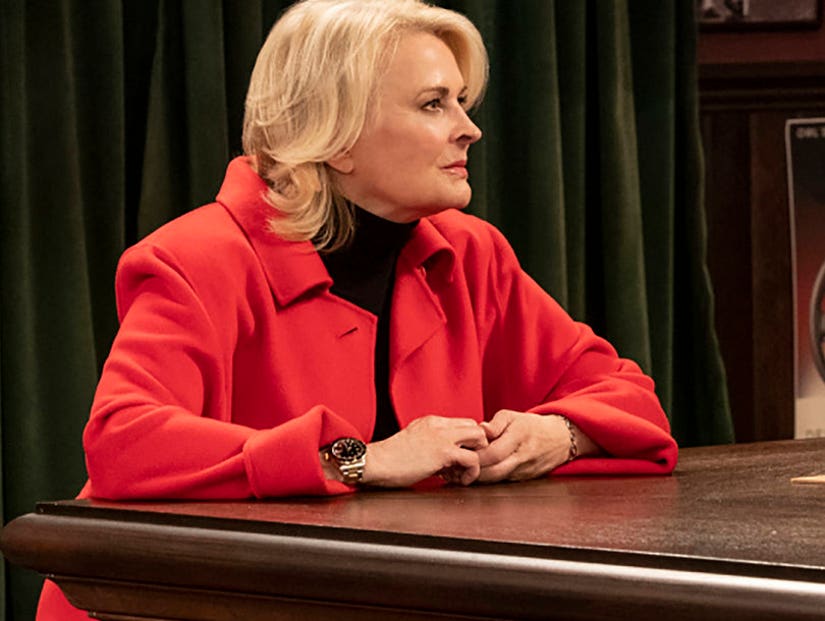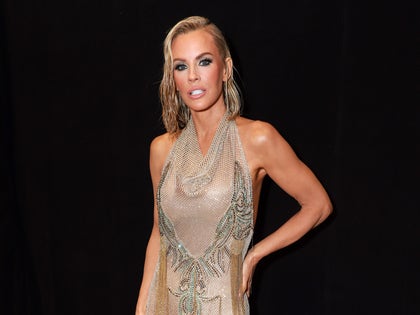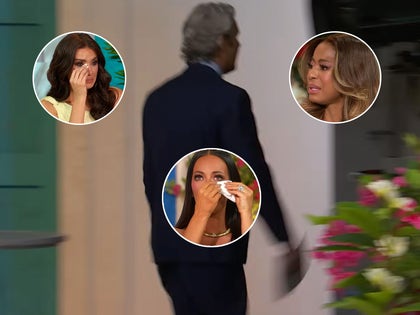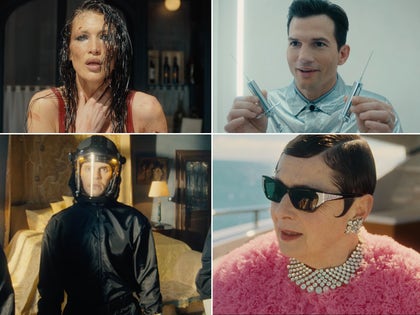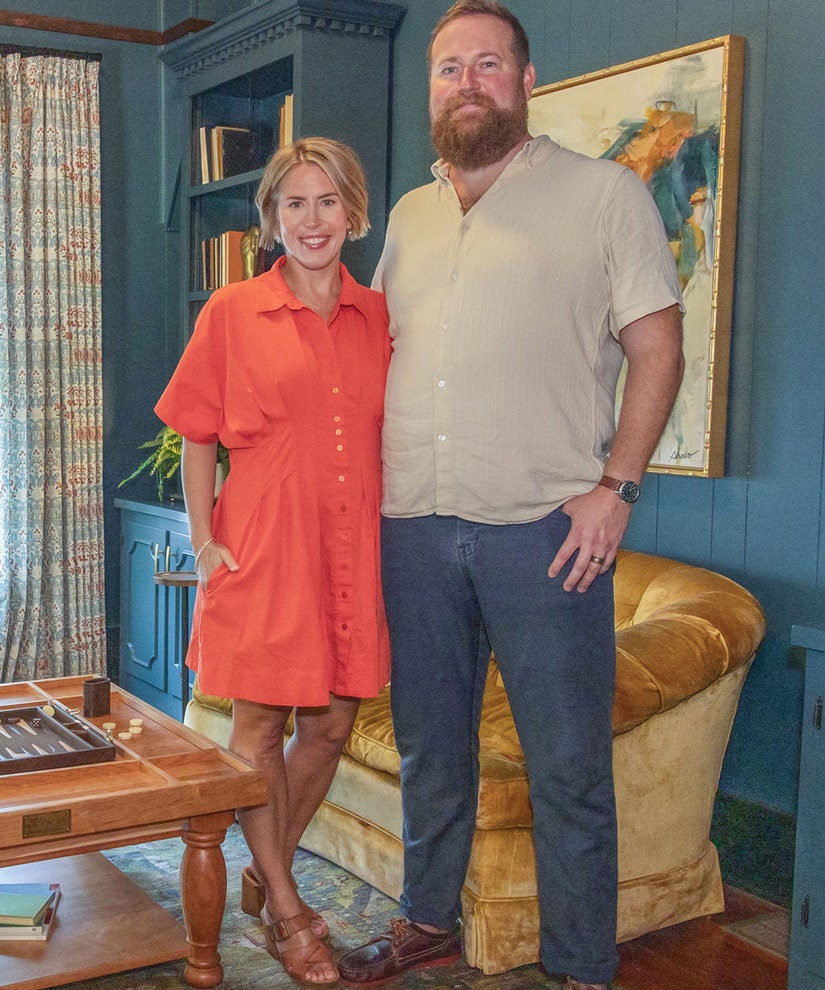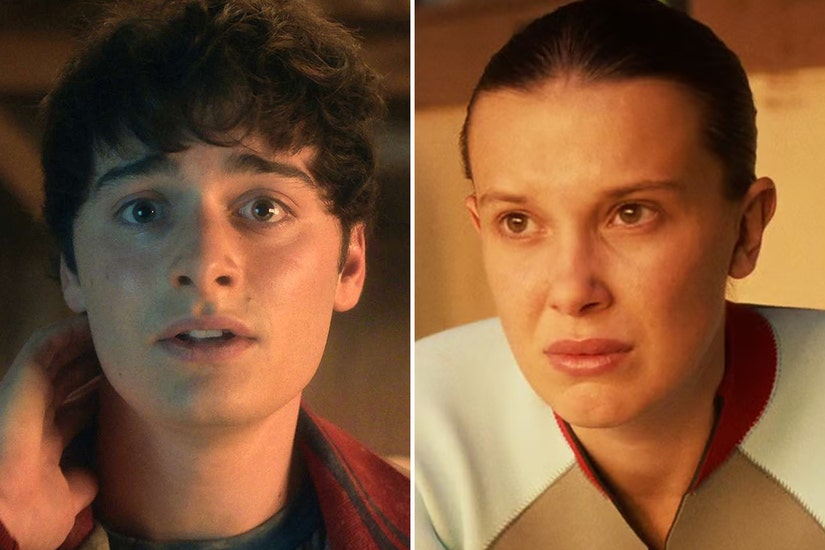Like something out of a Supreme Court hearing, Murphy confronts an attacker from her teenage years and gets about the same response.
It's surprising that a 30-year old sitcom is one of the most timely and relevant on television, but that's been a "Murphy Brown" trademark since it began, and the tradition continued as it dove headlong into the #MeToo movement this week.
While some might argue that the show didn't really offer any solutions or even really dig that hard into the complexities of the movement, considering it is a show about a hard-hitting reporter. But that wasn't the goal here. This wasn't a story about #MeToo as a news story, it was about #MeToo as it impacts individuals.
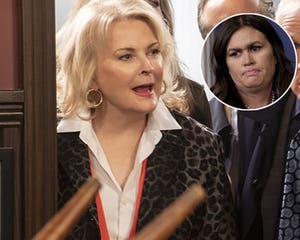 CBS
CBS
'Murphy Brown' Launches Blistering Attack Against Sarah Huckabee Sanders: 'Why Do You Lie?'
View StoryOn the one hand, there was Corky (Faith Ford), who spent the episode running down the list of all the #MeToo experiences she's had, only to reveal at the end she wasn't even out of her 20s yet.
It was played for laughs, but at the same time, it also probably rings true for many women, and especially those considered traditionally attractive, which was a huge part of her character's portrayal in the show's original run.
And then there's Murphy (Candice Bergen), who laughed off the thought that anyone would be foolish enough to try anything with her. But that was at work. Once home and gently confronted by her son, the tough-gal armor she'd built up over her career, which allowed her to excel in a male-dominated industry, crumbled and she finally opened up.
 Twitter
Twitter
7 WTF 'AHS: Apocalypse' Questions as Michael Raises the Dead and 'Murder House' Looms
View StoryMurphy's MeToo
Murphy's #MeToo came when she was 19, in college and had just won her first award as a collegiate journalist, and it came at the hands of her mentor. "He invited me to his house afterward and I assumed there would be other people," she said. "There weren't. And something happened, that's it."
When Avery (Jake McDorman) asked if she'd told anyone, she replied, "No. I put it in a drawer in my brain and moved on. That's what we did in those days. It was a different time." But really, this is exactly the same reaction of many victims through the years and even during the #MeToo movement.
Next, Murphy started to look at how she behaved in the days and months leading up to the unwanted advances, which Avery pointed out was "victim blaming." It's important to know that Murphy is a learned woman and she knows all of these things. But just like she compartmentalized the incident itself, her rational mind has compartmentalized all of the things she knows to be true about her assault and separated it from the memories of the assault itself.
That's how she can know rationally that she did nothing wrong, but emotionally and when reliving it, those rational thoughts are nowhere to be found.
MeToo in the Workplace
"Murphy Brown" has always straddled the line between humor and drama when tackling some of its more serious topics, and they managed that this week with a tonal separation. Murphy's story remained seriously presented throughout, with no laughs to be found anywhere, leaving the rest of the cast to find moments of laughter in a serious topic.
To their credit, they were mostly successful, though Miles (Grant Shaud) wanting to ask out a subordinate and rejoicing when she finally quit so he could was the most awkward story, we have to applaud Pat's (Nik Dodani) app designed to warn Frank (Joe Regalbuto) when he was crossing the line verbally, only to eventually learn when he was thinking wrong thoughts.
 Getty
Getty
Melania Trump Takes Break From Touring Africa to Demand 'Hard Evidence' From Women Accusing Men of Sexual Misconduct
View StoryHimToo Is Alive and Well
As for Murphy, she went and confronted her attacker, detailing a rather standard unwanted advance on a couch that resulted in her fleeing the house and leaving her award behind. But rather than get the apology and closure she sought, she found a man who steadfastly refused to acknowledge any wrongdoing, and even threw the blame back at her.
Sound familiar?
"You were always a great storyteller, Murphy. But this one tops them all," he said, at first prepared to deny it altogether. "Is this about the 'Me Too' movement? Women dredging up the past? Pointing fingers. Ruining reputations."
Next, he did some classic victim blaming, telling her, "You'd been flirting with me, shamelessly. For months. And I tried to stay professional. But that night, you were sending out such strong signals."
But this wasn't some college teen he was dealing with anymore. This was a strong, professional woman who knew who she was. So when she told him all she wanted was the truth and an apology, absolution was staring him right in the face. But pride and ego wouldn't allow him to go that far even now.
"Apology? Well, I would have thought you came here to thank me for opening up your world. Everything you've accomplished, Murphy, was because of me," he shouted.
"I accomplished everything in spite of you, you weak, miserable excuse for a man!" she shot back. And so she had to settle for shattering his trophy case and taking her award back as closure.
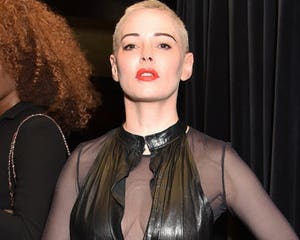
Rose McGowan Denies Calling #MeToo 'A Lie,' Still Thinks Time's Up in Hollywood Is 'Bulls--t'
View StoryCalm and Collected Closure
Sometimes there are no easy answers, and you won't find the answers you're looking for because people are weak, or stubborn, or prideful or whatever. Some people can't face their truth and there's nothing you can do about it.
What was also remarkable was that Murphy didn't seek to destroy this man. She didn't even specifically warn off the 19-year old he had currently working for him, though she did give her a card and offer her a job should she ever choose to leave his employ.
Honestly, it might have been better for #MeToo as a movement to see her be more assertive in trying to protect this young girl from a potential predator, but that's not what we got. Nothing about this episode was overly angry or overly aggressive, and maybe that was the right move.
We're still in an era where women are taken less seriously when they become too emotional or too angry. Throughout her confrontation with a man who was in full deny-and-deflect mode, Murphy kept her cool. But she also proved that sometimes that's all you can do. Ranting and raving at this man would have done nothing in the moment.
 Getty
Getty
Hollywood Livid Over Brett Kavanaugh's Supreme Court Confirmation: 'People Should Be F--king Terrified'
View StoryMore or Less Is Never Enough
Now, she could have sought to ruin his career, or pulled that young student out of there, and many would argue that she should have. They would say that this is what #MeToo is about, speaking truth to power and seeing that power toppled as a result.
But just as you can't dictate when someone should come forward with their truth, you also shouldn't dictate what they want to do with it. Murphy could have done all of those things, but that's not what she wanted. She wanted to get her closure, and while it didn't come as anticipated, she did get it. Now, she's satisfied.
Was it right to leave a potential predator with some sort of power over young teenage girls in power? Probably not. But was she ready to fight that battle with a man who was clearly going to be defiant every step of the way, and with nothing but her word against his?
Let's be real, if "Murphy Brown" is reflective of the world we live in, what would be the point? More to the point, pursuing that storyline could easily eat up several more episodes, if not the rest of the season, and we're sure the writers are eager to move onto other topics.
In other words, it was handled the way everything was handled in its era, in 22-minutes or less. Unsatisfying to some, but at least it was fearless in jumping into the fray.
"Murphy Brown" continues to stoke the flames of hot-button topics every Thursday at 9:30 p.m. ET on CBS.

